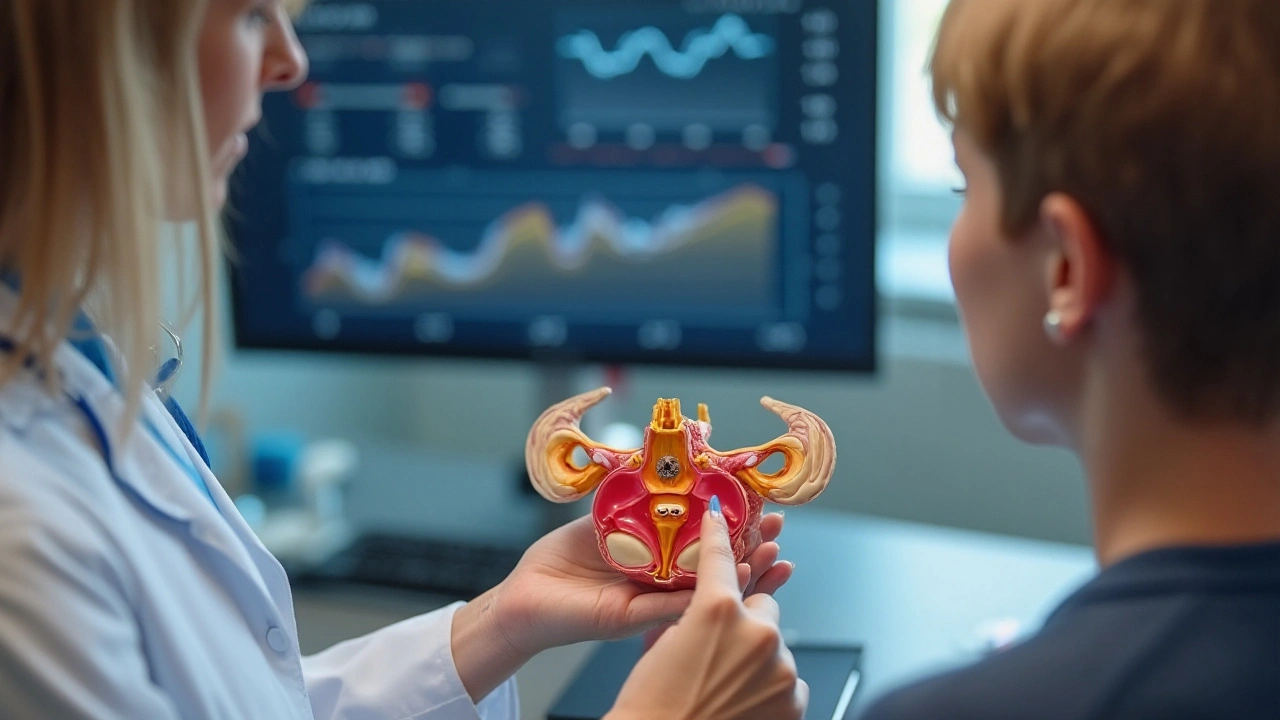Do you feel tired all the time, gain weight without changing your diet, or suddenly have mood swings and low sex drive? Those are classic signs of hormone disorders. This page collects useful, short reads that explain what to watch for, how doctors test for problems, and what real treatment options look like.
Thyroid issues are the most common. Hypothyroidism (low thyroid) often shows as fatigue, weight gain, cold sensitivity, and constipation. Hyperthyroidism (high thyroid) brings anxiety, weight loss, fast heart rate, and heat intolerance. Simple blood tests—TSH and free T4—usually give a fast answer. If you’ve read our deep dive on desiccated thyroid vs. Synthroid, you know there are choices for hormone replacement and specific pros and cons for each.
Adrenal problems are less obvious. Low cortisol (adrenal insufficiency) causes low energy, salt cravings, and dizziness when standing. High cortisol (Cushing’s) often means rapid weight gain around the belly and face, plus easy bruising. Your doctor will order morning cortisol, ACTH tests, or a dexamethasone suppression test when they suspect these.
Sex-hormone issues hit both men and women. In women, PCOS (polycystic ovary syndrome) can cause irregular periods, acne, and fertility problems. Men with low testosterone may notice low libido, weak muscles, and mood changes. Tests like total testosterone, LH, FSH, and estradiol help clarify the picture.
Keep a simple symptom log for two weeks: sleep, mood, energy, weight, appetite, hair changes, and menstrual cycle notes. That record often helps your clinician connect the dots faster than vague descriptions. Bring it to your appointment.
Ask for specific labs—don’t rely on general screening alone. For thyroid: TSH and free T4; add free T3 or thyroid antibodies if symptoms don’t match results. For adrenal concerns: morning cortisol and ACTH, or an official cortisol suppression test. For sex hormones: measure at the right time of the menstrual cycle or morning for testosterone.
Treatment varies. Levothyroxine is a common, reliable thyroid replacement. Some people consider natural desiccated thyroid—read our comparison piece to see current evidence and risks. Adrenal insufficiency needs prescribed steroid replacement; Cushing’s may need surgery or medication. PCOS and low testosterone have lifestyle and medical options: weight management, metformin, or hormone therapy where appropriate.
Finally, beware of quick online fixes. If you shop online for hormone meds, use trusted pharmacies and confirm prescriptions. Our site has guides on buying medicines safely and what checks to run before you order.
If you suspect a hormone disorder, don’t ignore small signs. Early testing and clear records speed up diagnosis and lead to simpler, safer treatment choices.

This article explores the intriguing connection between pheochromocytoma, a rare adrenal gland tumor, and diabetes. It dives into how this tumor affects hormone levels, leading to potential impacts on blood sugar regulation. Readers will find tips for diagnosis and management, making complex medical information accessible and helpful.